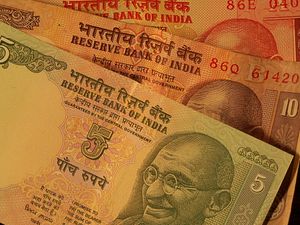The lower house of India’s bicameral parliament, the Lok Sabha, approved legislation that would give a new panel authority over the country’s monetary policy. The legislation will go the Rajya Sabha, the upper house, where it is also expected to be passed.
The panel was proposed last year as part of the center-right Indian government’s ongoing reforms; it was presented as part of the government’s most recent national budget.
If enacted, the law would dilute the current power of the governor of the Reserve Bank of India, the country’s central bank, who has final say on interest rate decisions. Under the new law, which is part of a broader finance bill, a seven-member monetary policy panel would be set up to make interest rate decisions. The panel would additionally have a mandate to target inflation.
The panel proposed under the legislation mirrors a common sort of monetary policy-setting body, used by several other states. In the Indian proposal, three government representatives and three central bank representatives would sit on the panel, each with one vote regarding monetary policy decisions.
The bank’s governor—currently Raghuram Rajan—would have one vote, to be delivered should there be a tie between the other six. According to Indian Finance Minister Arun Jaitley, the inflation targets, which will be set by the government and the RBI and will be set in terms of the Consumer Price Index (CPI), will be reviewed every five years.
For Raghuram Rajan, the passage of the law would be a welcome development in India’s monetary policy-setting mechanisms. Rajan, in March, said he was happy about the panel proposal, which he saw as in the interest of the Indian economy more broadly.
“While the RBI Governor will no longer be able to set monetary policy unilaterally, I believe shifting the decision to a committee is in the economy’s interest,” he said.
Rajan added that he believed that the panel would not only “aggregate multiple views better than an individual can, it will offer more continuity, and be less subject to undue pressure.”

































